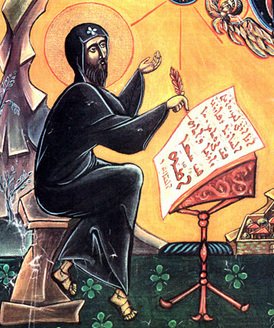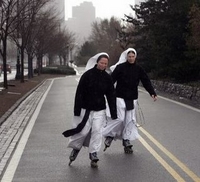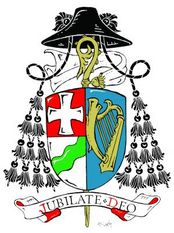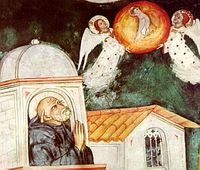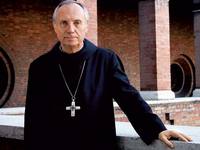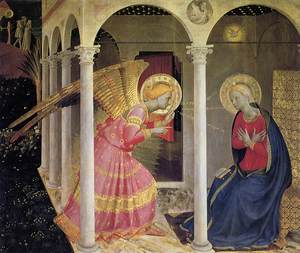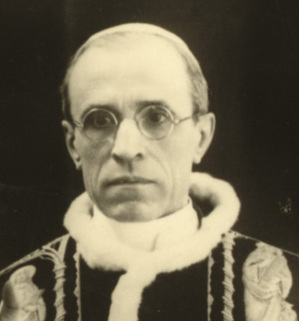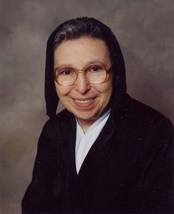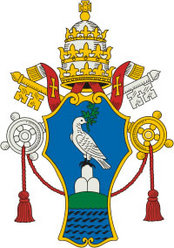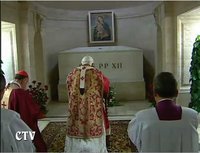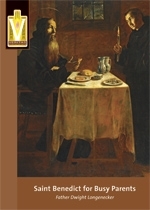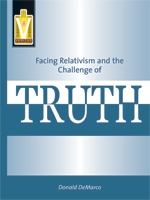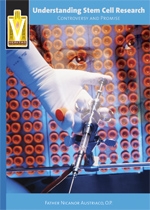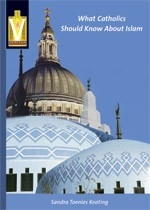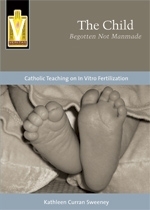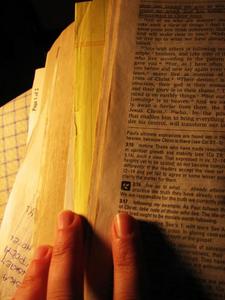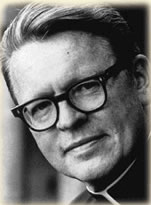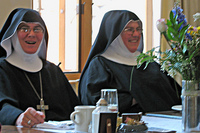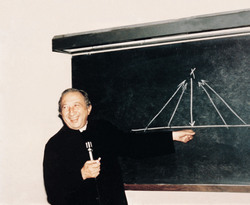 Communion and Liberation (CL), an ecclesial lay movement founded in Italy in 1954 by Msgr. Luigi Giussani, is currently present in 80 countries throughout the world and 100 cities in the United States. The name of the movement, Communion and Liberation, expresses the certainty that communion with Christ brings liberation of the human person.
Communion and Liberation (CL), an ecclesial lay movement founded in Italy in 1954 by Msgr. Luigi Giussani, is currently present in 80 countries throughout the world and 100 cities in the United States. The name of the movement, Communion and Liberation, expresses the certainty that communion with Christ brings liberation of the human person.
The essence of the CL charism is twofold: 1) the proclamation that God became Man and the affirmation that this man, Jesus of Nazareth, who died and rose again, is a present reality whose visible sign is communion – that is to say, the unity of a people led by the vicar of Christ – and 2) the awareness that it is only in Jesus Christ that the deepest needs of the human heart are fulfilled. CL’s mission is thus the education of its members toward Christian maturity and collaboration in the mission of the Church in all spheres of contemporary life.
Besides the invitation to prayer and regular practice of the sacraments, Communion and Liberation invites everyone to a weekly catechetical gesture called “School of Community.” School of Community aims at being a true school which, through the reading and discussion of texts, shapes in
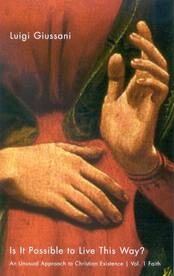 its participants a clearer understanding of the nature of the Christian fact. The assigned texts come from the teachings of the Church or Msgr. Giussani’s writings. We are currently studying Is it Possible to Live this Way?: Faith by Msgr. Luigi Giussani in School of Community and we are studying Pope Benedict XVI’s encyclical Spe Salvi as part of our personal work.
its participants a clearer understanding of the nature of the Christian fact. The assigned texts come from the teachings of the Church or Msgr. Giussani’s writings. We are currently studying Is it Possible to Live this Way?: Faith by Msgr. Luigi Giussani in School of Community and we are studying Pope Benedict XVI’s encyclical Spe Salvi as part of our personal work.
There is more to the School of Community?
Presence that Moves: The constitutive factors of the School of Community
The beginning of an experience is the encounter with a human reality that is different. A School of Community that is detached from this would be an ideology or an abstraction.
In the School of Community, certainly we must talk about life, but in the light of the new experience that we have encountered. Otherwise we talk of life as we conceive it, how we feel about it, how it makes us react in natural terms, and in any case following a criterion that is not belonging. The School of Community is the main instrument of the new life, of the new way of pursuing the aim of the new “I”(i.e., a new understanding of who I am as God sees me).
The Leader
Everything depends on the one who leads the School of Community. If the one who leads is a presence, then intelligence and affectivity are moved in a different way. It’s the novelty that leads. If he gives a lesson, then he is not a presence, he doesn’t move. At best what he moves is a dialectic, a discussion, a series of thoughts. The following morning all of that line of thoughts is irrelevant to life.
The sign that the School of Community is led is that you come away from it changed.
The School of Community must be a development of the encounter. In it the whole life of the Movement is continually taken up again and surpassed.
Without existentiality (the link between the word and the reality of life) there is no School of Community. Only with this link is it the expression of an experience. If it doesn’t bring you to notice something that must change and, therefore, to desire to bring about this change, it is not School of Community.
How is the School of Community Done?
As prayer. Since the School of Community must reassume the phenomenon of the Movement in its development, remember that there is no search for the truth about Destiny without prayer. So the meeting must begin with prayer.
We need to pray during the meeting, as an attitude of the mind in the one asks questions and in the one who answers-an attitude of humility, happy and sure of what it brings. Prayer becomes the discovery of the need for the sacraments, in which the initial event once again becomes a presence.
How is the School of Community Organized?
Ø First of all it is a school-a place and a method in which you learn.
Ø Learning means increasing your awareness of reality.
Ø Learning implies understanding the text and what it means, that is to say in its relationship to reality and in the reasons that it gives for making us understand how it is linked with reality.
Inevitably in order to understand you need to repeat (ripetere = petere ad = tending toward) to increase your attention. Repeating with attention is the same thing as seeing. When is it that you understand? In so far as you feel that the words you read and hear correspond with what you live.
In this way, reality, in so far as you face up to it, becomes an epiphany, a revelation of your awareness of belonging.
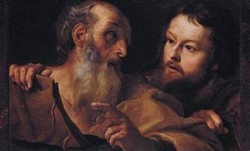 Four Points To Work On
Four Points To Work On
- An intelligent reading of the text, attentive to the way it relates to things, to the judgments it generates, to the reasons it gives.
- Communication of your experience (everything can be brought in), in comparison with the text.
- A culture that develops. Your motivations and criteria must spring up from within the nature of the experience and not from outside. The more you penetrate into the event that has made us grow, and the more you follow, the more intelligent you become.
- The synthesis made by the leader. He communicates how his experience has developed during the event that is the School of Community.
The Communicative Result
The School of Community conceived and lived in this way gives rise to an affective impulse to communicate that has three aspects:
- Witness and mission;
- Attention to people’s needs, charity that expresses itself in an organic consistency of works;
- Culture: the affective impulse to communicate inspires creativity, progress in judgment, logical discoveries, with all the necessary instruments that spring from these.
See more at www.clonline.us
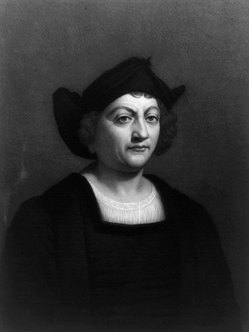 He had three ships and left from Spain;
He had three ships and left from Spain;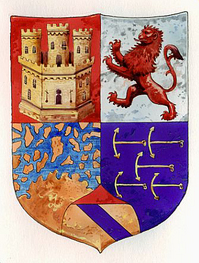 It was the Bahamas, and it was hot.
It was the Bahamas, and it was hot.